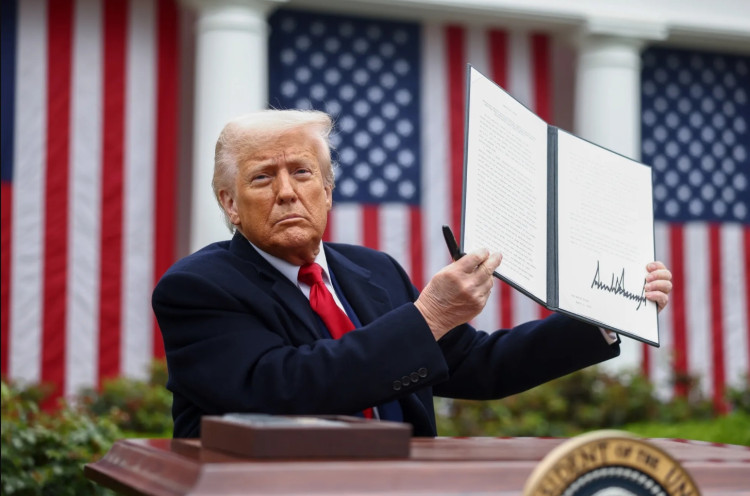Countries and businesses may be hoping America’s institutions rein in Trump on tariffs. They would be better off looking elsewhere.
Last night’s announcement from the White House is a huge moment in trade policy, with President Trump’s tariffs threatening to shake the global economic order. US commentators have already drawn parallels with Richard Nixon’s abandonment of the gold standard in the early 1970s and Herbert Hoover’s signing of the notorious ‘Smoot-Hawley’ tariffs at the start of the Great Depression.
Those precedents suggest Trump’s new tariffs could be with us for decades. Or that they could be dead and buried in a couple of years. Nixon’s decision to bin off the gold standard has never been revisited. But the tariffs Hoover approved contributed to a backlash that ultimately gave his successors the power to pursue the US’s modern free trade agenda.
What happens next will depend on how the rest of the word responds. We’re in a period of history where regional powers and even small nations can frustrate the will of major powers. However, it’s also going to depend on how American public opinion and domestic political forces react.
Trump’s first term in office doesn’t provide a clear roadmap. Then, other nations (particularly Canada) used their links with Congress and US state capitols to avoid Trump shredding NAFTA and steer him towards new trade agreements such as UMSCA. But that success looks hollow in the wake of the President’s new and punitive approach to America’s neighbours. Meanwhile Trump’s use of Section 232 tariffs – which allow the President to slap duties on imports deemed to threaten national security – was later embraced as a tactic by Joe Biden.
Biden’s actions suggest businesses and foreign governments shouldn’t expect any Democratic successor to be “unburdened by what has been”. Democrats in the Senate have moved quickly to repudiate Trump’s tariffs. But the party has taken a more protectionist turn thanks to the populist agenda promoted by Bernie Sanders, Elizabeth Warren and AOC and embraced by Biden in 2020. The next Democratic nominee will know as much as Biden that the road to winning the White House runs through swing states where this brand of economic nationalism is popular. They may even be from one of them.
America’s federal system could in theory undercut Trump’s agenda. Northern border states, including Minnesota (run by former VP nominee Tim Walz) and New York have all but begged Canada not to retaliate against their economic interests. But they have no authority to set a meaningful trade policy of their own. America’s courts have sweeping powers of judicial review and even Republican-appointed justices are showing impatience with Trump’s overuse of executive power. Yet they traditionally offer deference to the President in matters of foreign policy and global trade.
The best hope for businesses and governments looking for a return to normality may lie with American public opinion. Already polls show a curious reversal of sentiment from Trump’s first term, with the President posting relatively strong approval ratings overall but substantially underwater on economic and trade issues. Poor results for Republicans in special elections in recent weeks imply American voters had little appetite to endure higher prices and ‘Buy American’ even before this latest round of tariffs – including in states with a tradition of economic populism like Wisconsin. That may explain why Canada – once again the nation with perhaps the most sophisticated understanding of American politics – is buying up billboards with anti tariff messages across the US.






